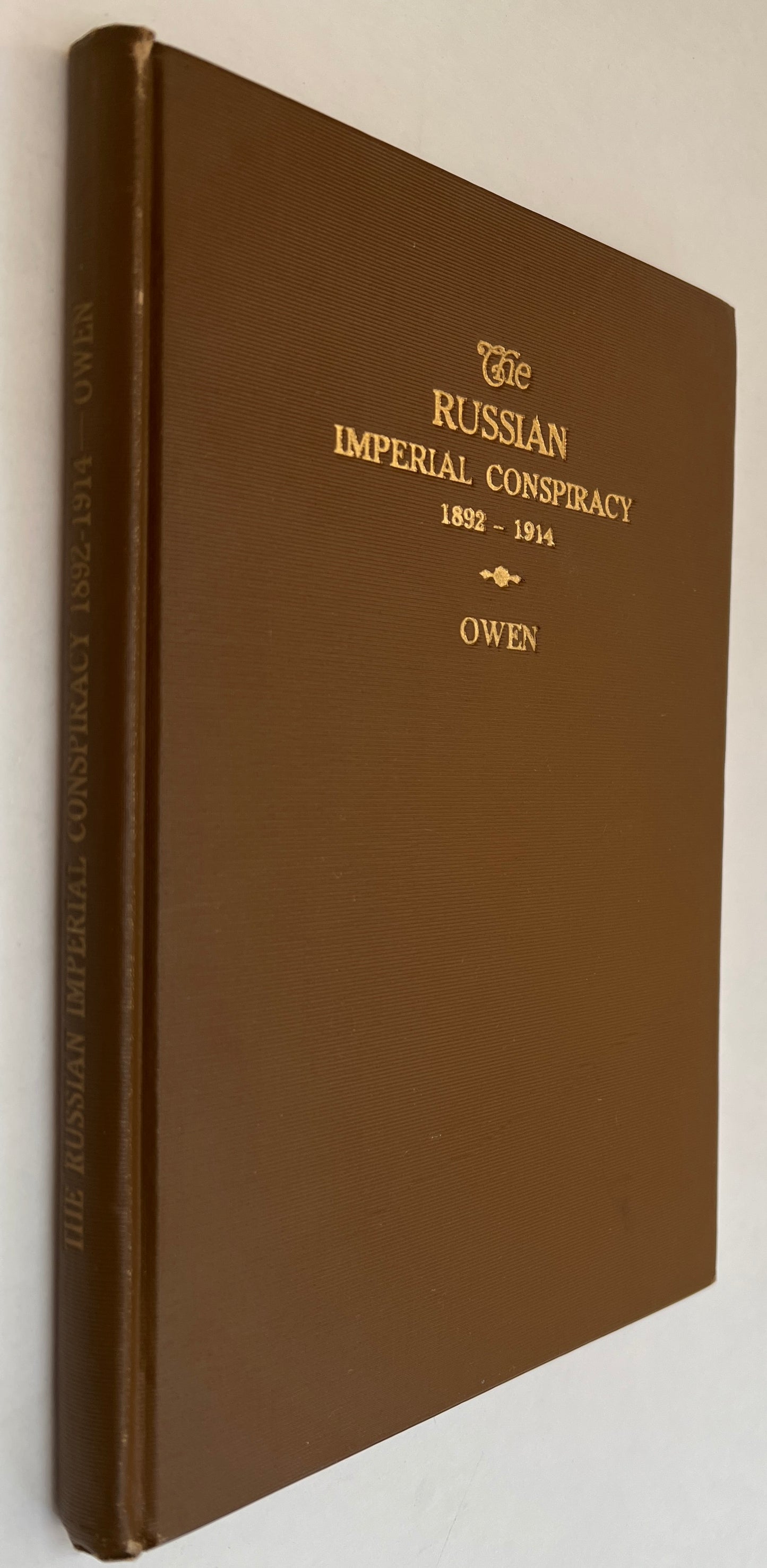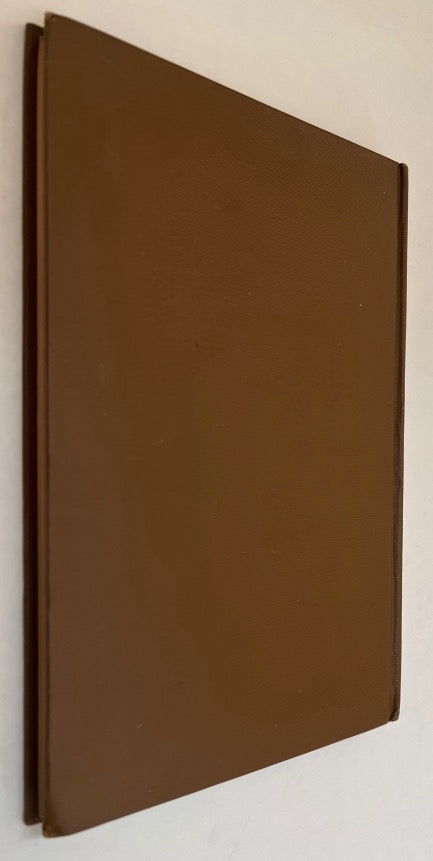Owen, Robert L. (Robert Latham)
The Russian Imperial Conspiracy, 1892-1914: the Most Gigantic Intrigue of All Time
The Russian Imperial Conspiracy, 1892-1914: the Most Gigantic Intrigue of All Time
Couldn't load pickup availability
[Baltimore]: [Sun Book & Job Printing Office], 1926. First edition. Small quarto in gilt title-stamped and ribbed brown cloth; 154 pages; 23 cm. "Evidence and historical works relating to the Russian conspiracy": pages 152-154; bibliographical references. Near fine. Hardcover.
Signed and Inscribed by the author on a tipped in slip. "Robert Latham Owen Jr. (February 2, 1856 – July 19, 1947) was one of the first two U.S. senators from Oklahoma. He served in the Senate between 1907 and 1925. Born into affluent circumstances in antebellum Lynchburg, Virginia, the son of a railroad company president, Owen suffered an almost Dickensian reversal of fortune when his family was ruined financially by the Panic of 1873 and his father died while he was still in his teens. Owen, who was part-Cherokee on his mother's side, responded by heading west to Indian Territory, where he built a new life as, in turn, a schoolteacher working with Cherokee orphans; a lawyer, administrator and journalist; a federal Indian agent; and the founder and first president of a community bank. Among the achievements that brought him to wider public notice, and helped pave the way for his election to the U.S. Senate in 1907 when Oklahoma (incorporating the former Indian Territory) achieved statehood, was his success as a lawyer in 1906 in winning a major court case on behalf of the Eastern Cherokees seeking compensation from the U.S. Government for eastern lands the Cherokees had lost at the time of the Indian removals. A Democrat active in many progressive causes, including efforts to strengthen public control of government, and the fight against child labor, Owen is especially remembered as the Senate sponsor of the Glass-Owen Federal Reserve Act of 1913, which created the Federal Reserve System. In discussions at the time, he resisted a campaign to put the Federal Reserve formally under the control of the banking industry, and the 1913 Act emerged broadly in line with Owen's compromise proposal, creating a central Federal Reserve Board nominated by the Government alongside twelve regional Federal Reserve Banks dominated by the larger banks. Owen subsequently became highly critical of what he saw as the Federal Reserve's bias towards deflationary policies during the early 1920s and again in the early 1930s, which he attributed to excessive influence by the largest banks upon the Fed, and which he identified as largely responsible for causing the Great Depression: a minority view at the time, but one that has, in recent decades, gained wide acceptance among Conservative economists (having been popularized by Milton Friedman in the 1960s). In 1920 Owen unsuccessfully sought the Democratic Party's nomination for the presidency."Guerre mondiale, 1914-1918 -- Causes. Politics and government War -- Causes. Time: 1871-1918 Geographic: Russia -- Politics and government. Europe -- Politics and government -- 1871-1918. U.R.S.S. -- Relations extérieures. Europe -- Politique et gouvernement -- 1871-1918. Russia. Europe.
Share




